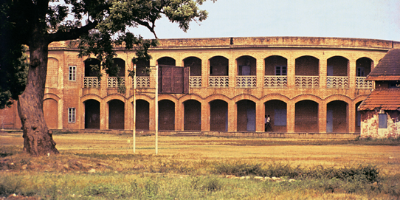Christian Missionaries - lobby for education with EIC (dec 4, 1789 – jun 19, 1813)
Description:
East India Company avoided any interference with the native religion and culture. They had hostile attitude towards missionaries Proselytising and education activities.Christian Missionaries– were operating covertly with religious and Christian education objectives prior to 1813. Evangelists avoided the terms and conditions of Charter Act 1793 and propagated with the help of pamphlets (paper manufacturing and printing press gave an advantage) .
Missionaries lobbied for allowing educational activities in India. They tried to get influence in Britain to allow them open schools in India for religious and moral improvement of the natives.
Zachery Macaulay in Britain organized campaign calling missionaries to send petitions to parliament for unrestricted dispatch of missionaries.
Enter Charles Grant (16 April 1746 – 31 October 1823):
He was the earliest advocate of English Education with a view to introduce Christianity in India (four decades before Macaulay). He was appalled at degeneration of Indian society after fall of Mughal Empire. He termed Hindus as corrupt, fraud, dishonest, mutual hatred, barbarous. Believed religion had stick into grossest form of superstition. He wrote that
Christianity, dissemination of science and literature of Europe could remove the abuses of Indian society
Planned for spreading Christianity through Company’s charter 1790. But King George III withdrew due to French revolution.. His plan to push through Company Charter failed.. Company felt it is against trading interests.
In his (in)famous work "Observations on the State of Society among the Asiatic Subjects of Great Britain"- 1792, he wrote
"Every stone, every tree acquired the importance of a deity.. Practice of throwing children into river for propitiating gods. Swinging devotees in hooks ! Brahmins imposed “manu smriti” on lower caste people. Their words were law- no one could question it. Infanticide – practiced widely in India (specially in Rajasthan), Sati was widely prevalent. Brahmins monopoly over priestly rights. Kulinism- maintain the purity of bloodline of higher castes– degenerated into child marriage and polygamy."
He suggested the adoption of English as the language of Government, a decision which was ultimately taken by Bentick about forty years later. He also suggested the adoption of English as a medium of instruction—an educationally unsound but curiously prophetic proposal that was accepted later on through the able advocacy of Macaulay. He correctly diagnosed the eagerness of the Indian people to learn the English language and rightly fore- told that multitudes of the young would flock to the English schools and that Indians themselves would, in course of time be teachers of English.
References:
1. Ghosh, S. C (1995). The History of Education in Modern India, 1757-2012
2. Naik, J. P., & Nurullah, S. (1974). Students' history of education in India 1800-1973. MacMillan company of India limited.
3. Grant, C. (1797). "Observations on the state of society among the Asiatic subjects to Great Britain, particularly with respect to morals, and on the means of improving it."
Added to timeline:
Date:
dec 4, 1789
jun 19, 1813
~ 23 years
